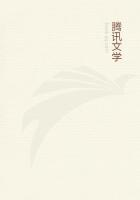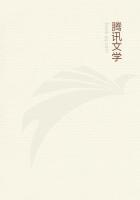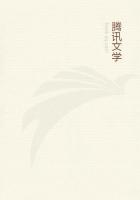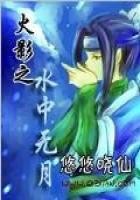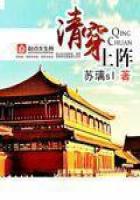Soc. Then, as we are agreed that a man should enquire about that which he does not know, shall you and I make an effort to enquire together into the nature of virtue?
Men. By all means, Socrates. And yet I would much rather return to my original question, Whether in seeking to acquire virtue we should regard it as a thing to be taught, or as a gift of nature, or as coming to men in some other way?
Soc. Had I the command of you as well as of myself, Meno, I would not have enquired whether virtue is given by instruction or not, until we had first ascertained "what it is." But as you think only of controlling me who am your slave, and never of controlling yourself,-such being your notion of *******, I must yield to you, for you are irresistible. And therefore I have now to enquire into the qualities of a thing of which I do not as yet know the nature. At any rate, will you condescend a little, and allow the question "Whether virtue is given by instruction, or in any other way," to be argued upon hypothesis? As the geometrician, when he is asked whether a certain ******** is capable being inscribed in a certain circle, will reply: "I cannot tell you as yet; but I will offer a hypothesis which may assist us in forming a conclusion: If the figure be such that when you have produced a given side of it, the given area of the ******** falls short by an area corresponding to the part produced, then one consequence follows, and if this is impossible then some other; and therefore I wish to assume a hypothesis before I tell you whether this ******** is capable of being inscribed in the circle":-that is a geometrical hypothesis. And we too, as we know not the nature and -qualities of virtue, must ask, whether virtue is or not taught, under a hypothesis: as thus, if virtue is of such a class of mental goods, will it be taught or not? Let the first hypothesis be-that virtue is or is not knowledge,-in that case will it be taught or not? or, as we were just now saying, remembered"? For there is no use in disputing about the name. But is virtue taught or not? or rather, does not everyone see that knowledge alone is taught?
Men. I agree.
Soc. Then if virtue is knowledge, virtue will be taught?
Men. Certainly.
Soc. Then now we have made a quick end of this question: if virtue is of such a nature, it will be taught; and if not, not?
Men. Certainly.
Soc. The next question is, whether virtue is knowledge or of another species?
Men. Yes, that appears to be the -question which comes next in order.
Soc. Do we not say that virtue is a good?-This is a hypothesis which is not set aside.
Men. Certainly.
Soc. Now, if there be any sort-of good which is distinct from knowledge, virtue may be that good; but if knowledge embraces all good, then we shall be right in think in that virtue is knowledge?
Men. True.
Soc. And virtue makes us good?
Men. Yes.
Soc. And if we are good, then we are profitable; for all good things are profitable?
Men. Yes.
Soc. Then virtue is profitable?
Men. That is the only inference.
Soc. Then now let us see what are the things which severally profit us. Health and strength, and beauty and wealth-these, and the like of these, we call profitable?
Men. True.
Soc. And yet these things may also sometimes do us harm: would you not think so?
Men. Yes.
Soc. And what is the guiding principle which makes them profitable or the reverse? Are they not profitable when they are rightly used, and hurtful when they are not rightly used?
Men. Certainly.
Soc. Next, let us consider the goods of the soul: they are temperance, justice, courage, quickness of apprehension, memory, magnanimity, and the like?
Men. Surely.
Soc. And such of these as are not knowledge, but of another sort, are sometimes profitable and sometimes hurtful; as, for example, courage wanting prudence, which is only a sort of confidence? When a man has no sense he is harmed by courage, but when he has sense he is profited?
Men. True.
Soc. And the same may be said of temperance and quickness of apprehension; whatever things are learned or done with sense are profitable, but when done without sense they are hurtful?
Men. Very true.
Soc. And in general, all that the attempts or endures, when under the guidance of wisdom, ends in happiness; but when she is under the guidance of folly, in the opposite?
Men. That appears to be true.
Soc. If then virtue is a quality of the soul, and is admitted to be profitable, it must be wisdom or prudence, since none of the things of the soul are either profitable or hurtful in themselves, but they are all made profitable or hurtful by the addition of wisdom or of folly; and therefore and therefore if virtue is profitable, virtue must be a sort of wisdom or prudence?
Men. I quite agree.
Soc. And the other goods, such as wealth and the like, of which we were just now saying that they are sometimes good and sometimes evil, do not they also become profitable or hurtful, accordingly as the soul guides and uses them rightly or wrongly; just as the things of the soul herself are benefited when under the guidance of wisdom and harmed by folly?
Men. True.
Soc. And the wise soul guides them rightly, and the foolish soul wrongly.
Men. Yes.
Soc. And is not this universally true of human nature? All other things hang upon the soul, and the things of the soul herself hang upon wisdom, if they are to be good; and so wisdom is inferred to be that which profits-and virtue, as we say, is profitable?
Men. Certainly.
Soc. And thus we arrive at the conclusion that virtue is either wholly or partly wisdom?
Men. I think that what you are saying, Socrates, is very true.
Soc. But if this is true, then the good are not by nature good?
Men. I think not.

